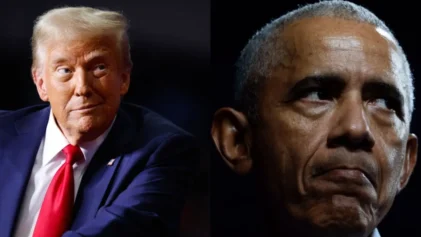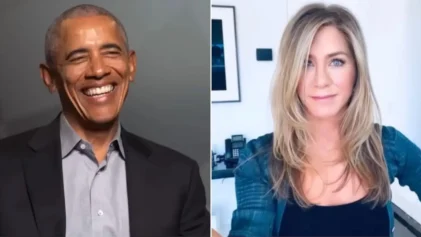With President Obama poised to give the second State of the Union address of his second term tomorrow night, Washington insiders are predicting that Obama is already a lame duck who has very little time left to get anything substantial done during the rest of his presidency.
The way they see it, Republicans will be loathe to give the president big wins on any major legislation like immigration reform in the months leading up to the midterm elections this year. And after the elections are over, particularly if Republicans win control of the Senate—as many observers are now predicting—the political world will be subsumed by the next presidential election campaign and Obama’s agenda will be ignored by Congress.
In a piece on Time.com, writer Jay Newton-Small said the novelty of Obama’s powerful speeches has now faded because he’s been delivering them for the past decade.
“The fact is that the oratory and the communicating skills are just not what they used to be. They peaked maybe during the ’08 campaign, and he hasn’t been able to match that because it’s not new anymore,” Kenneth Khachigian, Ronald Reagan’s chief speechwriter for the second State of the Union address in Reagan’s second term, told Time. “People are used to it. It’s not a knock on him or his speechwriters. It’s that familiarity breeds contempt.”
Jeff Shesol, who was a speechwriter for President Bill Clinton, said the goals for the second State of the Union of the second term are typically modest. That will definitely be the case for a bruised Obama, whose approval ratings are near all-time lows and who had his efforts stymied by Congress in 2013 on gun control, immigration reform, Syria and unemployment-insurance benefits.
“Typically the President comes out of the gate in the second term feeling pretty ambitious. He makes some bold plans and gets things done with the understanding that that window closes pretty soon,” Shesol told Time. “That was [Obama’s] address last year. After a year or so, the political reality starts to assert itself. Second-term presidents are aware that they have only a certain amount of time before others take center stage.”
“Usually the problem is the gas tank’s running on empty, and Obama has used up most of his big initiatives early on. So the challenge is to have something fresh to say,” says Khachigian. “I worked on Reagan’s ’87 State of the Union, and it was a challenge because we had really no new initiatives, nothing earthshaking, and so we were basically left with a tour de raison of past big achievements.”
“Obama has some of the same problems,” he said.
Most observers expect to hear Obama talk about income inequality, an issue he’s been pushing hard of late. Carrie Dann of NBC News pointed out that the entire Democratic Party now sees the issue as a winner for them, with a new USA Today/Pew Research Center poll showing that majorities of both Republicans and Democrats believe income inequality has been growing over the past decade. The same poll also revealed there is overwhelming support for extending unemployment benefits for the long-term unemployed and for raising the minimum wage.
“I think he’ll push hard on two themes: increasing opportunity and social mobility — initiatives on job creation, wages, training, education — and frame those around the need for action,” Jon Favreau, who wrote Obama’s first four State of the Union addresses and his February 2009 address to a joint session of Congress, but recently left the White House for the private sector, told Time. “Not just executive actions that he can take himself, but highlighting actions that people outside Washington can and are taking: mayors, companies, citizens, etc. The idea is to prod Congress into some kind of productivity by pointing out how the rest of the country is moving forward, many instances in a bipartisan manner.”


